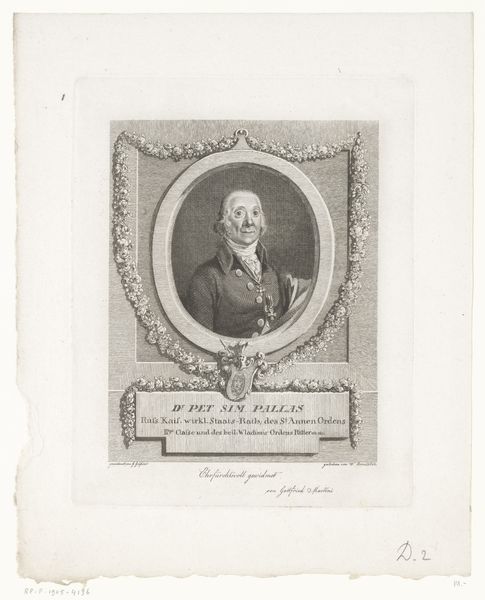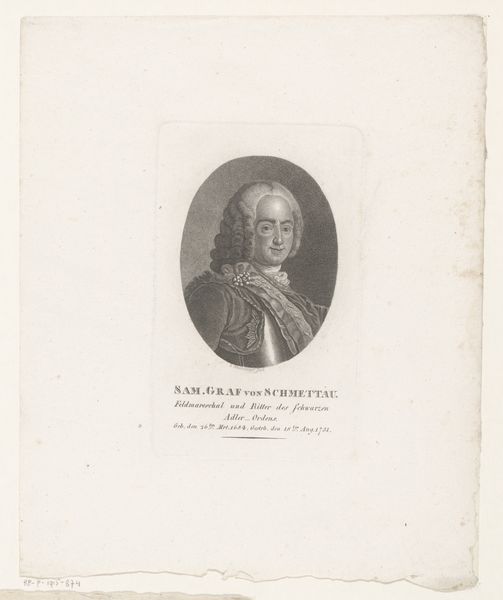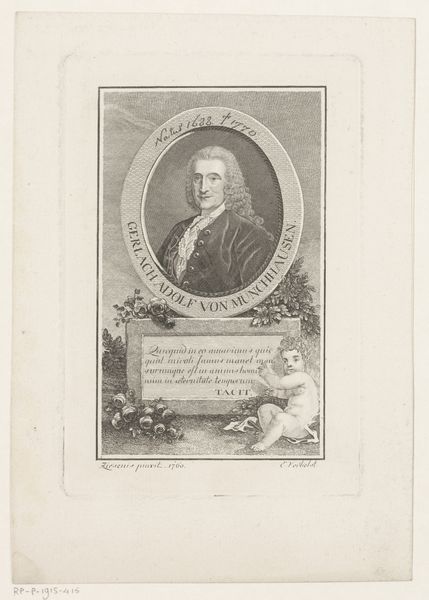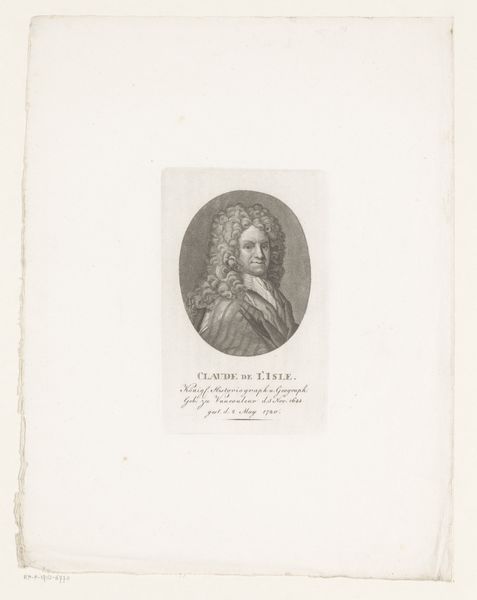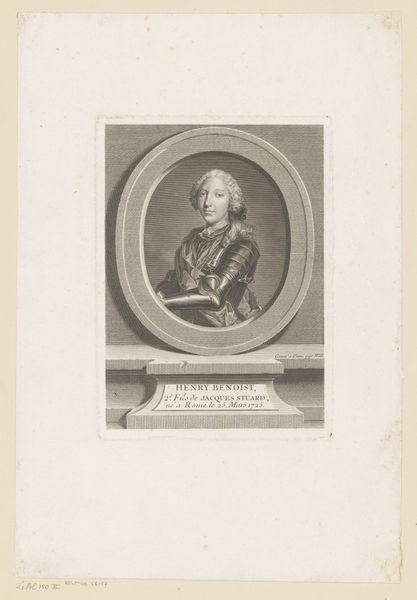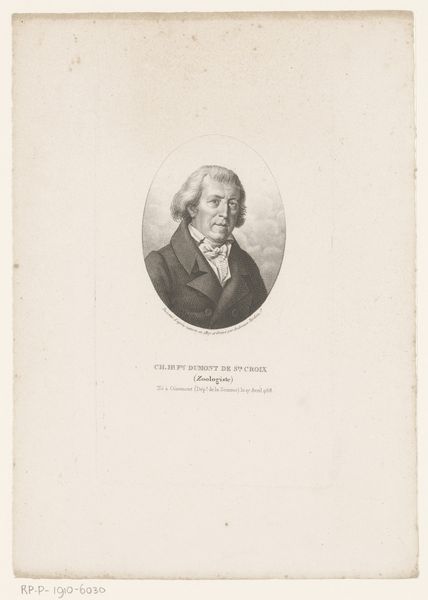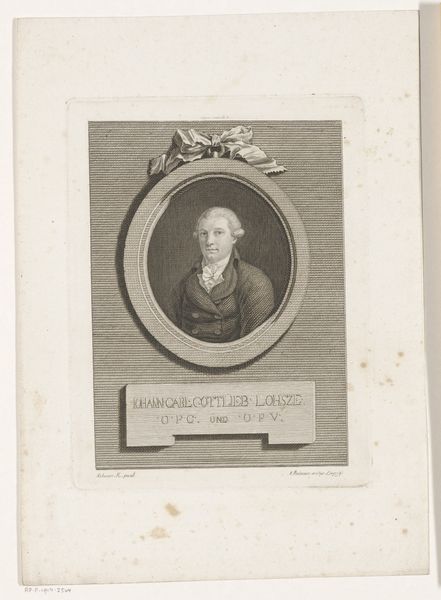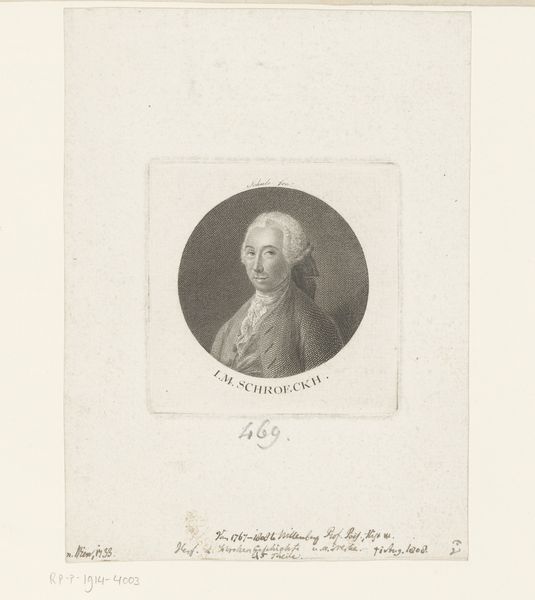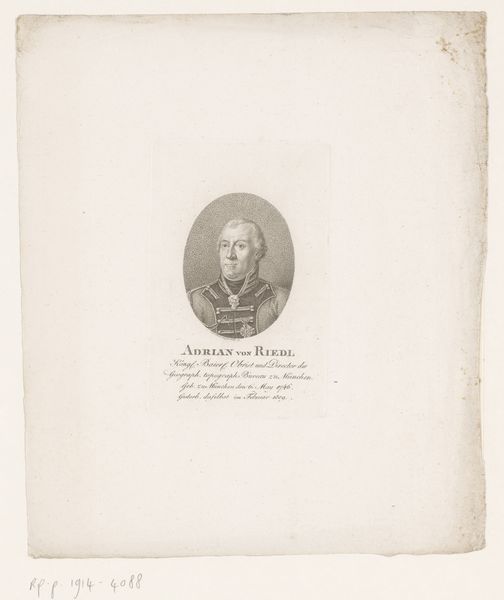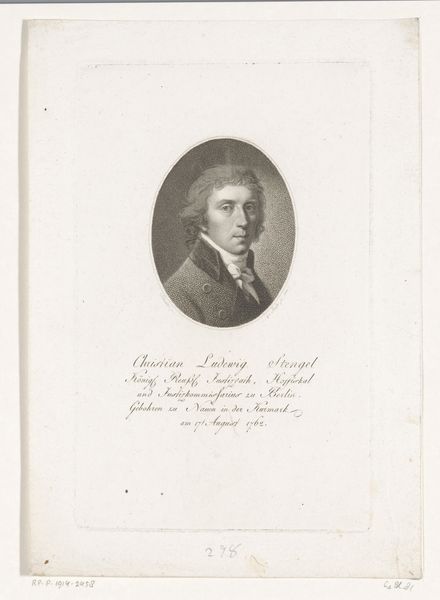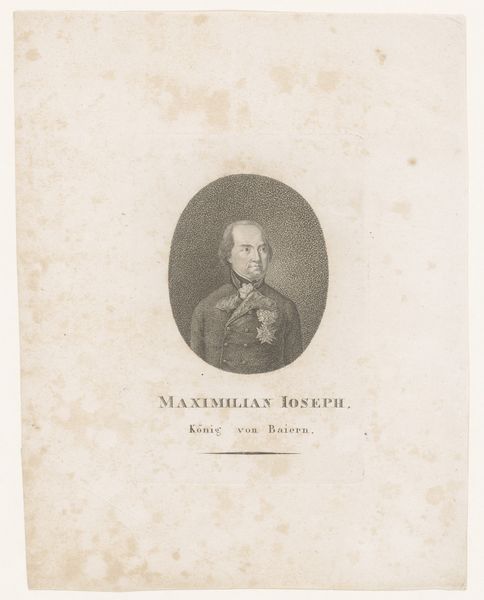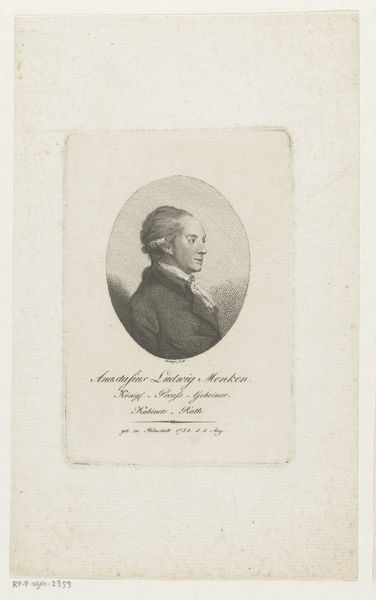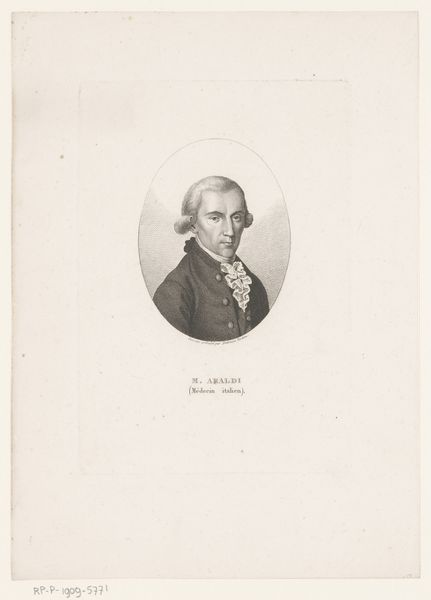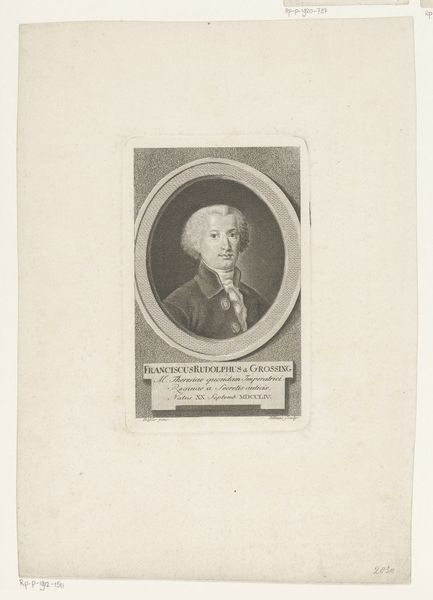
Portret van Louis Antoine d'Artois, duc d'Angoulême 1814
0:00
0:00
friedrichwilhelmbollinger
Rijksmuseum
print, engraving
#
portrait
#
neoclacissism
# print
#
old engraving style
#
history-painting
#
academic-art
#
engraving
Dimensions: height 211 mm, width 137 mm
Copyright: Rijks Museum: Open Domain
Editor: This is a print from 1814 titled "Portret van Louis Antoine d'Artois, duc d'Angoulême," currently housed in the Rijksmuseum. I find its understated quality striking, considering it depicts royalty. How do you interpret this work? Curator: Focusing on its formal qualities, observe the stark contrast achieved through engraving. The artist masterfully manipulates line and shadow to create a portrait contained within a perfect circle, emphasizing order. The neoclassical elements are palpable. The composition achieves a balanced visual rhythm through circular shapes, but does the stark palette and lack of texture reduce depth in your opinion? Editor: I see your point about the balanced rhythm, but, yes, I agree that it looks flattened. Does this flatness relate to printmaking as a medium during this period, or is it an intentional choice by the artist to depersonalize the Duke? Curator: It’s probable both factors are in play. Note the medium certainly dictates certain parameters, but the precise etching and attention to detail also serve to idealize the sitter, to construct him as a figurehead, devoid of the flaws associated with individualism. It evokes an air of controlled authority, doesn't it? Editor: Yes, absolutely. Thinking about the semiotics, it seems the artist intended to showcase authority over the human, creating an official record rather than an intimate portrayal. Thank you, that's fascinating! Curator: Indeed. Examining such artistic choices encourages us to explore how form and content interplay, thereby enhancing our understanding of historical representation.
Comments
No comments
Be the first to comment and join the conversation on the ultimate creative platform.
